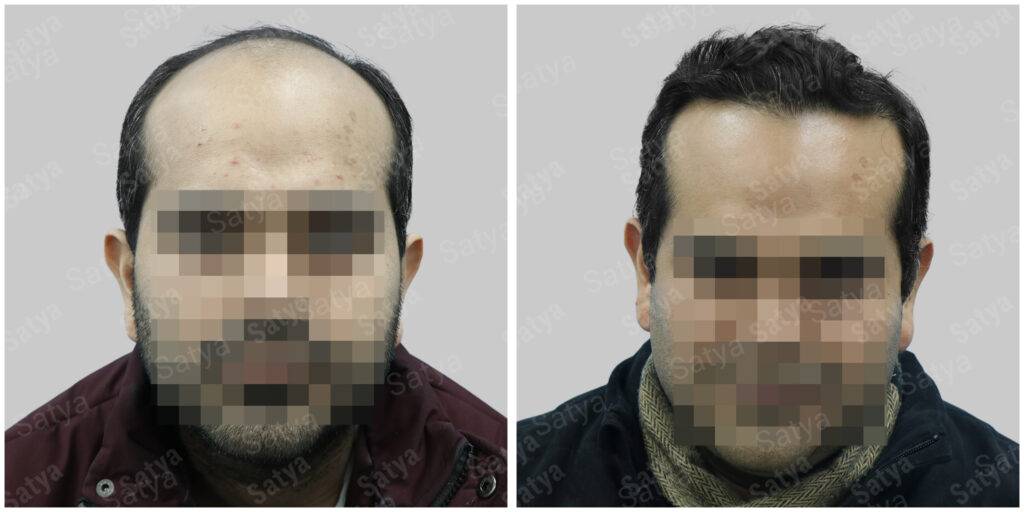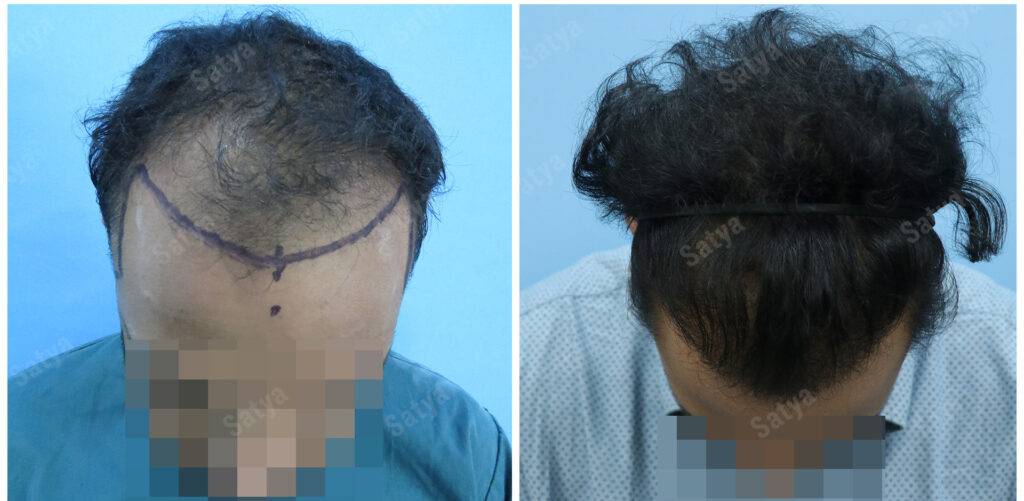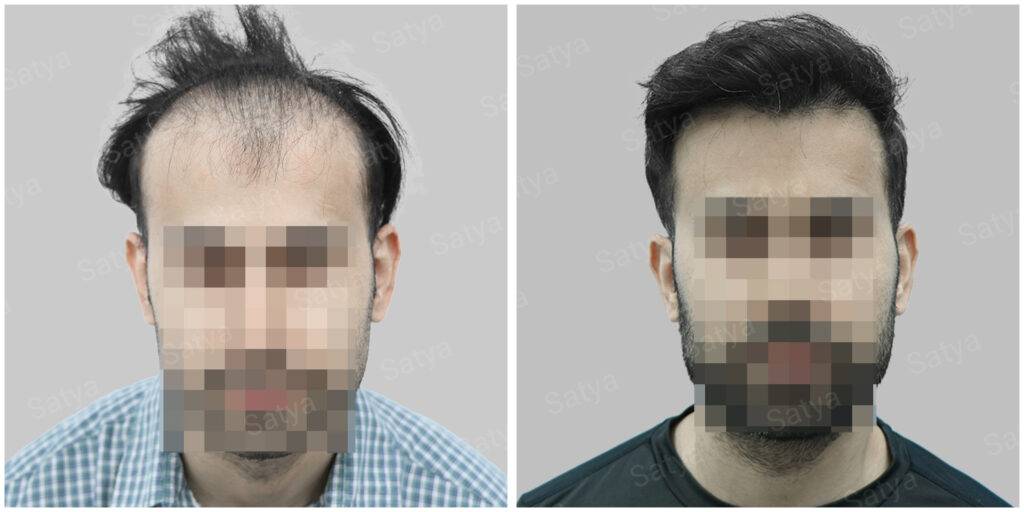Understanding Telogen Effluvium
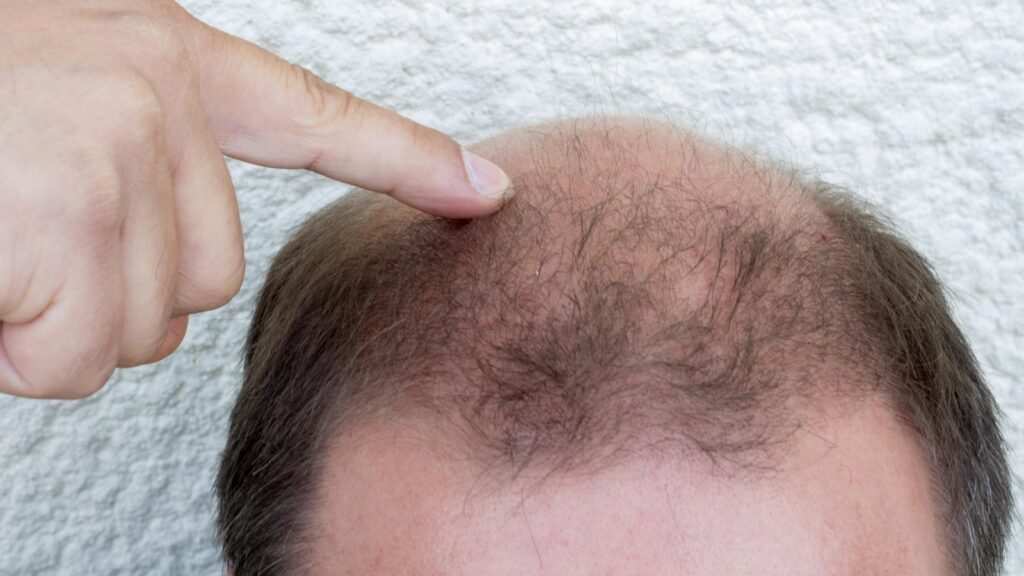
What is Telogen Effluvium?
Telogen Effluvium can occur in two primary forms: acute or chronic. It is often triggered by various factors, and these include:
Severe Stress:
High stress levels, whether due to work, personal issues, or other factors, can lead to telogen effluvium. The body’s response to stress can disrupt the hair growth cycle, leading to excessive shedding.
Sudden Weight Loss:
Rapid and significant weight loss, often associated with crash diets or certain medical conditions, can trigger telogen effluvium.
Pregnancy and Postpartum:
Hormonal fluctuations during pregnancy and the postpartum period can contribute to hair loss. Telogen effluvium in this context is often referred to as postpartum hair shedding.
Menopause:
Hormonal changes during menopause can also disrupt the hair growth cycle, leading to temporary hair loss.
Reaction to Certain Drugs:
Some medications can have side effects that include hair loss. This is especially common in drugs used for cancer treatment, anticoagulants, and certain antidepressants.
Surgery:
Major surgeries and the stress associated with them can lead to telogen effluvium in some cases.
Poor Diet:
Inadequate nutrition, especially deficiencies in essential vitamins and minerals, can contribute to hair loss.
Trauma or Shocking Event:
A traumatic experience, such as a physical injury or emotional shock, can disrupt the hair growth cycle and trigger excessive hair shedding.
Acute or Chronic Illness:
Serious illnesses, high fevers, and chronic medical conditions can lead to telogen effluvium.
Vitamin and Multi-nutrient Deficiency:
Deficiencies in vitamins like biotin, vitamin D, and iron can impact hair health and contribute to telogen effluvium.
Hormonal Disorders:
Conditions like thyroid disorders can disrupt the balance of hormones in the body, affecting hair growth.
It’s important to note that telogen effluvium is typically a temporary condition, and the hair usually regrows once the underlying cause is addressed.
Treatment Options at Satya Hair Solution
At Satya Hair Solution, we understand the distress that can accompany telogen effluvium. While this condition often resolves on its own, we offer a range of hair treatments and support to help our patients during this period. Our approach to treating telogen effluvium includes:
Counselling and Reassurance:
Providing patients with proper counselling and reassurance is crucial to managing telogen effluvium. Understanding that the condition is typically temporary can ease anxiety.
Identifying Underlying Causes:
Through detailed history-taking and medical assessments, we work to identify the primary cause that precipitated the hair loss. Addressing the underlying issue is essential for a successful outcome.
Medical Treatments:
Depending on the specific circumstances of the patient, we may recommend medical treatments that can help promote hair regrowth. These treatments may include medications, topical solutions, and supplements.
Platelet-Rich Plasma (PRP) Treatment:
PRP therapy involves using the patient’s blood components to stimulate hair follicles. It is a non-invasive and effective option for some individuals experiencing telogen effluvium.
Low-Level Laser Light Therapy:
Low-level laser therapy (LLLT) is a non-thermal, non-invasive method for treating hair loss. It stimulates hair follicles and can be a helpful adjunct in the treatment of telogen effluvium.
Hormonal Replacement Therapy:
For individuals going through menopause, hormonal replacement therapy may be recommended to address hormonal imbalances contributing to hair loss.
Stress Management and Counseling:
Stress can be a significant factor in telogen effluvium. We offer counselling and stress management techniques to help patients better cope with stress and reduce its impact on their hair.
Nutritional Guidance:
A balanced diet rich in protein, essential fatty acids, vitamins, antioxidants, and iron is crucial for hair health. We provide nutritional guidance to support hair regrowth.
Scalp Hygiene:
Maintaining good scalp hygiene is important. If dandruff or other scalp conditions are present, treating them can promote healthy hair growth.
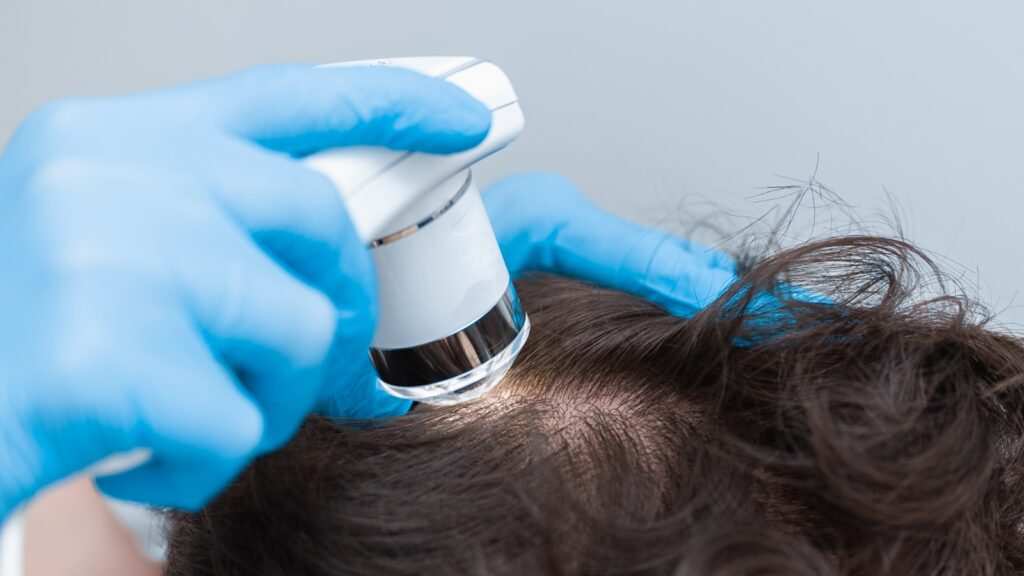
Cost Considerations for PRP Treatment in India
One of the questions frequently asked is about the cost of PRP treatment in India. At Satya Hair Solution, we prioritize quality over cost. We don’t promote our services as cheap but rather focus on delivering quality and ensuring utmost patient satisfaction.
The cost of PRP treatment in India can vary widely based on several factors, including:
- The level of baldness or hair loss severity
- The type of equipment used for PRP therapy
- The expertise and reputation of the clinic
- The number of PRP sessions required
Rather than pushing for multiple PRP sessions, we at Satya Hair Solution advise a single session, especially for self-limiting conditions like telogen effluvium.
At Satya Hair Solution, we are committed to providing comprehensive support and tailored treatments to address the unique needs of each patient, always prioritizing quality and patient satisfaction over cost. If you are experiencing hair loss, particularly if you suspect telogen effluvium, seeking the guidance of an expert dermatologist is highly advisable to ensure a proper diagnosis and treatment plan.
Get Appointment
Consultation

Repair

Blog

Galleries

Frequently Asked Questions
It is temporary and can be treated or managed. Here are some steps you can take to treat telogen effluvium:
- Identify and Address the Underlying Cause
- Ensure a Balanced Diet
- Gentle Hair Care
- Scalp Care
- Stress Management
- Medication
- Avoid Harsh Chemicals
- Be Patient
- Consult a Healthcare Professional
Telogen effluvium is a temporary hair loss condition that occurs when a large number of hair follicles enter the telogen (resting) phase of the hair growth cycle simultaneously. The regrowth of hair in telogen effluvium can vary from person to person.
The duration of telogen effluvium can vary from person to person, but it typically lasts for about 6 to 8 months. In some cases, it may persist for a shorter period, while in others, it can last longer, up to a year or more.
While there is no specific "cure" for telogen effluvium, it is typically a reversible condition, and hair growth usually returns to normal once the underlying cause is addressed.
Here are some signs and symptoms that may indicate you have telogen effluvium:
- Increased Hair Shedding
- Thinning Hair
- Scalp Health
- Gradual Onset
- Triggering Event
- Recovery

